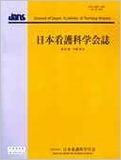Japanese
English
- 販売していません
- Abstract 文献概要
- 参考文献 Reference
要旨
目的:本研究は,無年金または低年金の定住コリアン高齢者が経験した健康に関連する生活上の困難さを明らかにすることを目的とした.
方法:研究参加者は,地域で生活する65歳以上の定住コリアン高齢者とした.Spradley(1979)のエスノグラフィックインタビューの手法を参考に,8名の参加者に1対1の半構造化面接を実施した.
結果:収集したデータから70のサブカテゴリと8つのカテゴリを抽出した.カテゴリは,お金がないから生活が厳しい,1世は読み書きができない,地域に入っていくことは難しい,自分たちも日本人もどちらも関わろうとしない,人とのつながりをもつ重要性を認識しながらもつながりが持てない現実がある,よりどころがない,アイデンティティがひとつだけではない,社会へのあきらめの気持ちから地域に少しずつ染まるという8つで構成された.
結論:看護職は,高齢の外国籍住民の多様な文化的背景や習慣の違いによる生活上の困難さを理解して,支援することが重要である.
Objective: The purpose of this study was to explore the difficulty of life related to health experienced by elderly Korean residents of Japan who are living without or with a low pension.
Method: Elderly Korean residents aged 65 or above living in a regional area participated in the study. One-to-one semi-structured interviews were conducted with 8 participants, using Spradley's (1979) ethnographic interview method.
Results: From the data collected through the interviews, Analysis of the interview data extracted 70 sub-categories and 8 categories. These 8 categories described the following issues: everyday struggles due to lack of money; inability to read and write as first generation immigrants; difficulties with integration into regional areas; both subjects and Japanese locals avoiding contact with each other; being unable to form human connections while realizing the importance of these connections; feeling that they have no support from their surroundings; having more than one identity; and the feeling of resignation towards society that slowly affects local activities.
Conclusions: It is important for nurses to understand and support difficulties in living due to diverse cultural backgrounds and customs of older foreign residents in Japan.
Copyright © 2017, Japan Academy of Nursing Science. All rights reserved.


